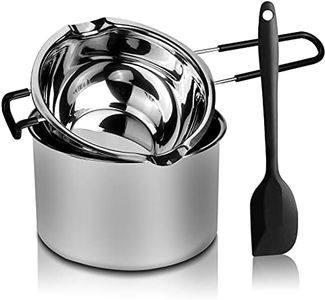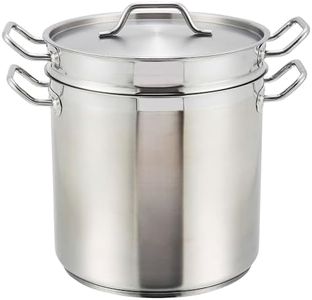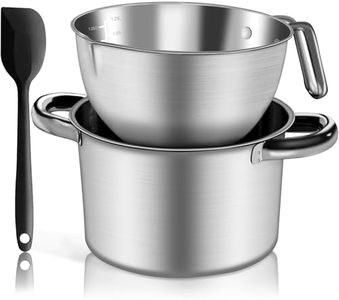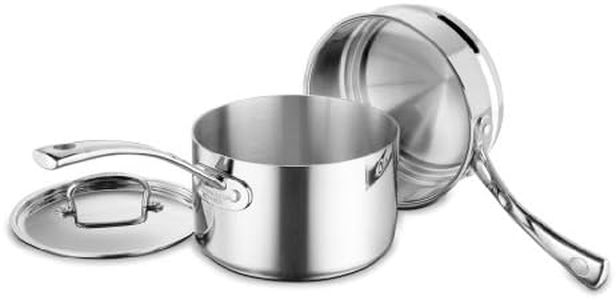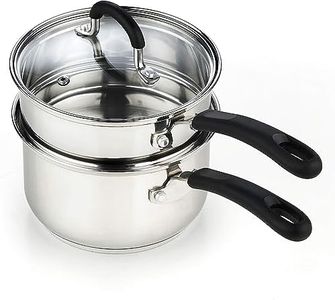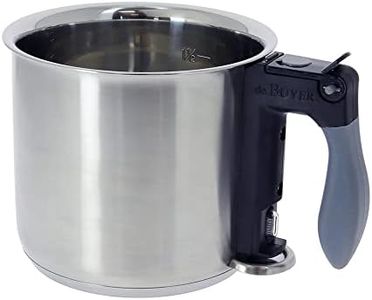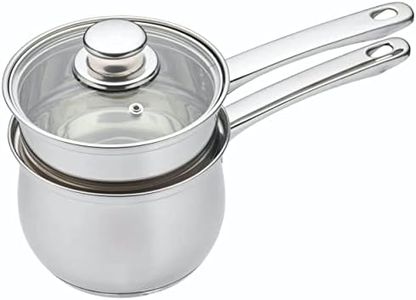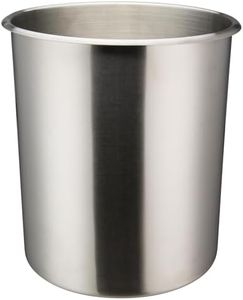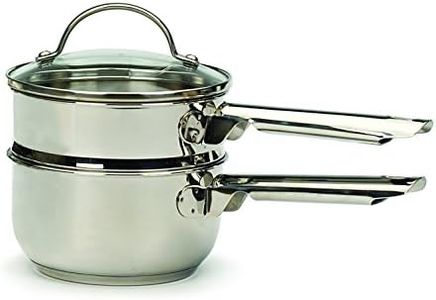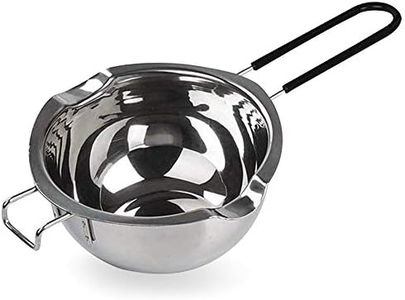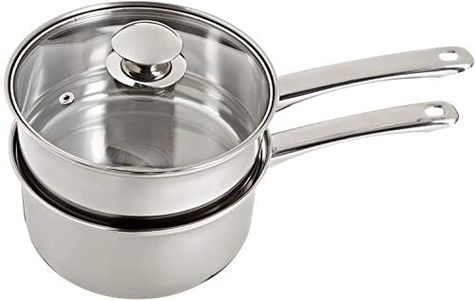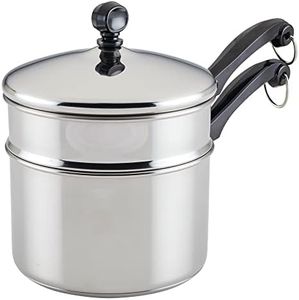We Use CookiesWe use cookies to enhance the security, performance,
functionality and for analytical and promotional activities. By continuing to browse this site you
are agreeing to our privacy policy
10 Best Double Boilers
From leading brands and best sellers available on the web.By clicking on a link to a third party's website, log data is shared with that third party.
Buying Guide for the Best Double Boilers
When choosing a double-boiler, it’s important to understand your main cooking needs. Double-boilers are perfect for gently heating foods that are sensitive to direct heat—like chocolate, custards, or delicate sauces. To find the one that’s best for you, it's a good idea to consider how often you'll use it, what types of dishes you plan to prepare, and how much food you typically cook at once. Focusing on key specifications ensures you pick a double-boiler that is easy to use, fits your kitchen routine, and helps you achieve great results.CapacityCapacity refers to the volume a double-boiler can hold, usually measured in quarts or liters. It’s important because if you pick one too small, you’ll struggle with larger batches; too large, and you might waste energy and storage space. Small capacities, like 1–2 quarts, are great for melting chocolate or preparing sauces in small amounts, while medium sizes (2–4 quarts) suit most families or medium recipes. If you regularly cook for groups or like to batch-cook, large sizes (over 4 quarts) might be useful. Think about the portion sizes you usually make and pick a capacity that matches your most common needs.
MaterialDouble-boilers are typically made from stainless steel, aluminum, or sometimes glass. Material affects how evenly heat is distributed and the longevity of your cookware. Stainless steel resists rust and staining and is very durable, while aluminum heats quickly but is less durable over time. Glass lets you watch your food, but it’s heavier and more fragile. If you want something easy to maintain and that can handle daily use, stainless steel is almost always a solid choice. If you like checking on your food visually, glass may be interesting, but think about how much you value durability versus visibility.
Compatibility with CooktopsSome double-boilers work only with certain types of stoves. For example, induction-compatible double-boilers must have a magnetic base. If you have an induction stove, look for confirmed compatibility. Most models, however, work just fine on gas and electric stovetops. Consider your own kitchen’s setup before purchasing so you don’t end up with cookware you can’t use.
Ease of CleaningCleaning can be an overlooked factor, but it matters for convenience. Double-boilers with dishwasher-safe parts are easier to maintain, while some may require hand-washing due to sensitive materials or attached handles. If you like quick clean-up, look for dishwasher-safe or simple designs without too many small crevices. If you don’t mind a little extra care, glass or more decorative models might be acceptable.
Handle Design and SafetyHandles should stay cool during use and be comfortable to grip. Secure, ergonomically designed handles make it easier to pour and move the double-boiler safely, especially when it is hot and heavy with contents. Some models offer silicone-wrapped or riveted handles for extra comfort and safety. Think about your comfort with lifting heavier cookware and whether you need features like cool-touch handles to avoid burns.
Lid QualityA well-fitting lid helps trap heat and moisture, which is crucial for many recipes. Some double-boilers include glass lids so you can watch your food, while others have steel lids for better durability. If you like to monitor your food without opening the pot, go for a glass lid. If you’re more concerned about durability and don’t mind lifting the lid to check, a metal lid will work well.
